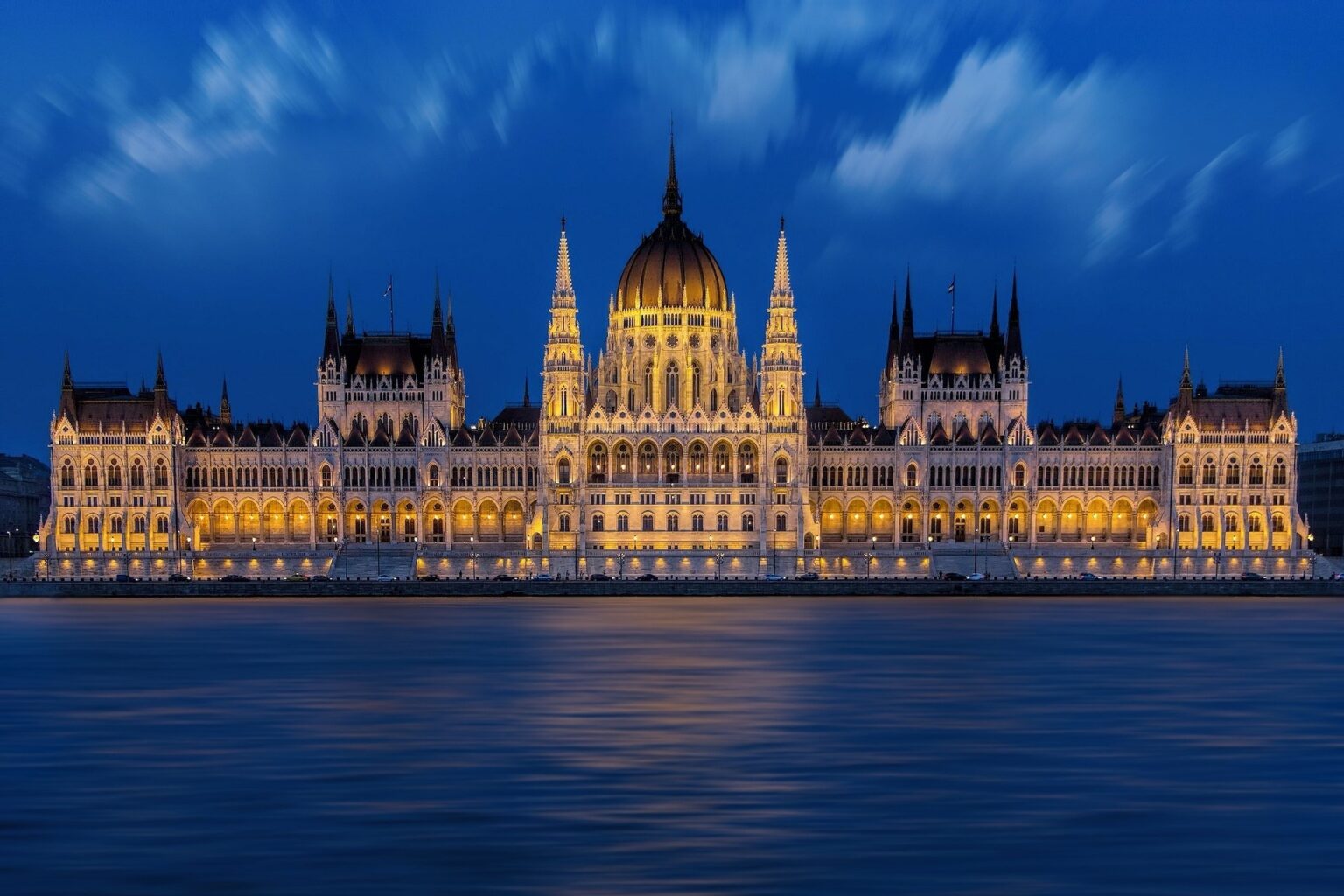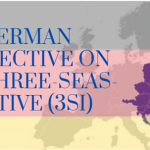OPINIONS
Date: 13 December 2022 Author: Robert Gonczi
After the collapse of the Soviet Union in 1991, the countries of Central and Eastern Europe regained the longed-for freedom and for the first time in centuries were able to independently decide about their future. In the 1990s, they set Euro-Atlantic integration as their overriding goal. However, one of the criteria for membership in the European Union and the North Atlantic Alliance was participation in regional cooperation formats. At that time, agreements were signed that established the Visegrad Group (V4) and the Central European Free Trade Agreement (CEFTA), two cooperation platforms that laid the foundations for further mechanisms of Euro-Atlantic integration. In 2007, most Central European countries could already boast membership in the European Union and NATO.

Cooperation between the countries of Central Europe was in fact revived after 2010. The Visegrad Group, despite many internal disputes, today is, in a way, the backbone of cooperation between countries within the European Union. From the very beginning, Budapest set itself the goal of leading the organization, as well as strengthening its position. For this purpose, the Hungarian authorities have repeatedly emphasized the bond that historically connects the Polish and Hungarian nations. Central European countries played a key role in culture, education and media after 2010. However, the V4 countries showed true unity in the times of the 2015 migration crisis and the Covid-19 pandemic (2019-2021). Stable cooperation between the Visegrad Group countries is indicated by the fact that the countries that make up it were named Hungary’s most important foreign partners in the report published in 2020.
Hungary and the Three Seas Initiative
– We are a member of the Three Seas Initiative. At the same time, we are aware that it is the Visegrad Group that reacts much faster to modern challenges, and at the same time does not involve any complicated procedures, concluded Krisztina Varju, Plenipotentiary of the Minister of Foreign Affairs for the Hungarian V4 Presidency. The politician’s position quite cautiously summarizes the attitude of the Hungarian authorities to the Three Seas Initiative, which, from the very beginning of its existence in 2015, fears that this format will eventually replace the Visegrad Group. It is worth adding that starting from 2015, the authorities consistently adhered to their stance towards the Three Seas Initiative, which is by no means as popular as the Visegrad Group mentioned above. Monthly cultural events are held in Hungary under the auspices of the V4, the role and importance of the organization is discussed at school, and the Hungarian public media regularly provides an overview of the Visegrad Four events. By comparison, the Three Seas Initiative does not have a similar resonance in Hungarian society. Similarly, the Hungarian authorities have never officially recognized the importance of the organization in economic, military or foreign policy matters. At the Riga summit in 2022, Hungarian President Katalin Novák disagreed with Andrzej Duda and Klaus Iohannis that the Three Seas Initiative should be extended to include military cooperation. It is probably about formal issues – the president of Hungary has incomparably fewer prerogatives than the presidents of Poland and Romania. In Hungary, the president has a largely representative role. and the Hungarian public media regularly present an overview of events concerning the Visegrad Four. By comparison, the Three Seas Initiative does not have a similar resonance in Hungarian society. Similarly, the Hungarian authorities have never officially recognized the importance of the organization in economic, military or foreign policy matters. At the Riga summit in 2022, Hungarian President Katalin Novák disagreed with Andrzej Duda and Klaus Iohannis that the Three Seas Initiative should be extended to include military cooperation. It is probably about formal issues – the president of Hungary has incomparably fewer prerogatives than the presidents of Poland and Romania. In Hungary, the president has a largely representative role. and the Hungarian public media regularly present an overview of events concerning the Visegrad Four. By comparison, the Three Seas Initiative does not have a similar resonance in Hungarian society. Similarly, the Hungarian authorities have never officially recognized the importance of the organization in economic, military or foreign policy matters. At the Riga summit in 2022, Hungarian President Katalin Novák disagreed with Andrzej Duda and Klaus Iohannis that the Three Seas Initiative should be extended to include military cooperation. It is probably about formal issues – the president of Hungary has incomparably fewer prerogatives than the presidents of Poland and Romania. In Hungary, the president has a largely representative role. Similarly, the Hungarian authorities have never officially recognized the importance of the organization in economic, military or foreign policy matters. At the Riga summit in 2022, Hungarian President Katalin Novák disagreed with Andrzej Duda and Klaus Iohannis that the Three Seas Initiative should be extended to include military cooperation. It is probably about formal issues – the president of Hungary has incomparably fewer prerogatives than the presidents of Poland and Romania. In Hungary, the president has a largely representative role. Similarly, the Hungarian authorities have never officially recognized the importance of the organization in economic, military or foreign policy matters. At the Riga summit in 2022, Hungarian President Katalin Novák disagreed with Andrzej Duda and Klaus Iohannis that the Three Seas Initiative should be extended to include military cooperation. It is probably about formal issues – the president of Hungary has incomparably fewer prerogatives than the presidents of Poland and Romania. In Hungary, the president has a largely representative role. It is probably about formal issues – the president of Hungary has incomparably fewer prerogatives than the presidents of Poland and Romania. In Hungary, the president has a largely representative role. It is probably about formal issues – the president of Hungary has incomparably fewer prerogatives than the presidents of Poland and Romania. In Hungary, the president has a largely representative role.
Nevertheless, Hungary plays an important role economically. Recently, the Hungarian section of the Via Carpatia route, one of the most important infrastructure projects of the Three Seas Initiative, was completed. Budapest also met the minimum requirements for each member of the Initiative. Nevertheless, the Hungarians are less active against Chinese and Russian influence. For example, unlike other countries in the region, Budapest has started cooperation with Huawei.
The events of the passing year turned out to be a serious test for cooperation within the Visegrad Group. Since the beginning of the Russian invasion of Ukraine, Hungary and the other countries of the Group have clearly differed in their attitude towards Moscow. Representatives of Hungary were not invited to the annual Warsaw Security Forum 2022 conference. This is a serious slip-up on the part of the organizers, as Hungary’s location in the heart of Europe is of key importance to both the Three Seas Initiative and the Visegrad Group. Moreover, the existence of nation-states further exacerbates the smoldering conflicts between Hungary and Romania over the Szeklerland and Ukraine and Hungary over Transcarpathia. Nevertheless, Slovakia and Hungary recently agreed on a similar issue in the name of good neighborly cooperation. The southern regions of Slovakia are inhabited by a large Hungarian community, which often led to tensions on the Budapest-Bratislava line. Thus, the good of the entire region took precedence over the particular interests of both countries. However, all of the above events under the Three Seas Initiative took place with Hungary’s marginal participation.
The failure of Hungary’s balance policy
Since 2010, Hungary has been pursuing a foreign policy focused on economic cooperation with neighboring countries. The Hungarian authorities thus sought to benefit from many formats of cooperation, both in the Euro-Atlantic and local dimensions. As a result, Budapest was criticized by many actors due to its lively economic cooperation with Russia, China, the countries of the Western Balkans and the Organization of Turkish States. Values and pragmatism rarely go hand in hand, and most of the countries mentioned are characterized by authoritarian governments, which may pose a threat to Europe’s security. – Hungary wants to maintain relations with Moscow and Beijing as well as with Washington, Berlin and Brussels. The Russian invasion of Ukraine proved that respect for values and pragmatism do not always go hand in hand.
Summary
Budapest must focus on its values in order to develop cooperation in the Central European region and fully return to all local cooperation formats. It is also worth adding that the Three Seas Initiative and the Visegrad Group are not identical and do not compete with each other. Both formats of cooperation can exist in parallel and complement each other. While Poland focuses on cooperation within the Three Seas Initiative, Hungary is in favor of deepening activities within the Visegrad Group. After all, Warsaw and Budapest can still participate in joint projects. Although the countries of the region view their foreign policy differently, it is important that they continue to deepen their ties. It is also worth adding that the position of all countries of the Three Seas Initiative should be respected so that it does not threaten the entire alliance.
Sources:
• 1163/2020. (IV.21.) Korm. Határozat Magyarország Nemzeti Biztonsági Stratégiájáról.
• GÖNCZI, Róbert (2021): Three Seas Initiative and the Visegrad Group: Rivalry or Complementarity? Hungary’s Central European Perspective. European Foreign Affairs, qr. 3. 2021. no. 18., 49-60.
• HEINCZ, Barnabás (2021): Visegrád vetélytársa lenne a Három Tenger Kezdeményezés? Mandiner, 26/06/2021 Source: https://mandiner.hu/cikk/20210625_harom_tenger_kezdemenyezes (Accessed on 18/11/2022)
• KŐBÁNYAI, Dénes (2021): A Három Tenger Kezdeményezés? Közép-Kelet-Európa reneszánsza? Biztonságpolitika.hu, 12/04/2021 Source: https://biztonsagpolitika.hu/egyeb/a-harom-tenger-kezdemenyezes-kozep-kelet-europa-reneszansza (Accessed on 18/11/2022)
• KORMÁNY.HU (2021): Magyarország több projektre is javaslatot tett a Három Tenger Kezdeményezés alapjában. 11/02/2022 Source: https://kormany.hu/hirek/magyarorszag-tobb-projektre-is-javaslatot-tett-a-harom-tenger-kezdemenyezes-alapjaban (Accessed on 18/11/2022)
• KÖRÖMI, Csongor (2022): Ukrajna miatt már nem annyira két jó barát a lengyel és a magyar kormány. Telex, 22/09/2022. Source: https://telex.hu/kulfold/2022/09/22/eotvos-csoport-lengyelorszag-magyarorszag-illiberalis-rezsim-zeold-zsombor-zgut-przybylska-edit (Accessed on 18/11/2022)
• NAGY, Dénes András (2021): Három Tenger Kezdeményezés: Magyarország és az EU, valamint Amerika szemszögéből. Ludovika.hu, 22/01/2021 Source: https://www.ludovika.hu/blogok/ot-perc-europa-blog/2021/01/22/harom-tenger-kezdemenyezes-magyarorszag-es-az-eu-valamint-amerika-szemszogebol/ (Accessed on 18/11/2022)
• TERÉNYI, János (2010): Közép-Európa a magyar külpolitika optikájában. Külügyi Szemle, 01/01/2010 Source: https://kki.hu/assets/upload/Kulugyi_Szemle_2010_01_Kezeep-Eurepa_a_magyar_kelpolitika.pdf (Accessed on 18/11/2022)
• ZEÖLD, Zsombor (2022): Hogyan hat Közép-Európa politikájára az ukrán háború? Egri Ügyek, 08/03/2022. Source: https://www.egriugyek.hu/mindenki-ugye/hogyan-hat-kozep-europa-politikajara-az-ukran-haboru (Accessed on 18/11/2022)
Financed by the National Institute of Freedom – Civil Society Development Center as part of the Government Program Civic Initiatives Fund NEWFIO for the years 2021-2030.
Support Us
If content prepared by Warsaw Institute team is useful for you, please support our actions. Donations from private persons are necessary for the continuation of our mission.
_________________________________
All texts published by the Warsaw Institute Foundation may be disseminated on the condition that their origin is credited. Images may not be used without permission.

















